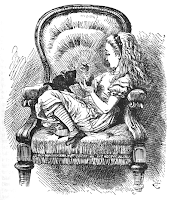"You be discrimihatin'"
~Molly Bates (on racism)

Martin Luther King may have put it a little more eloquently, but I think many of us have a similar vision of a future without racism. However, I have already found, through firsthand experiences on many occasions, that this vision is a naive one. For example, there was a story on the news this weekend of a brawl that broke out at Chuckie Cheeses. As we watched my stepdad said, “no surprise they’re all black.” I looked at him disgustedly, but made no comment. I learned a long time ago that anything I say goes ignored. Also, a disturbing event happened to me my sophomore year of high school. A guy that is African American asked me to the prom. Thrilled at being one of the few among my friends to get to go to the prom, I excitedly prepared for the dance as any other high school girl would. We had dinner beforehand and hung out at the entire dance. The following Monday, I came out to the parking lot to see that my car had been vandalized. Just above the back passenger wheel were the letters “KKK,” etched in by someone’s accusing key. I had never before seen any sort racism firsthand and (I have to admit) had grown up rather sheltered. My parents (my dad and stepmom at least) had always strictly enforced racial equality. There were no racist comments in our house and I was taught to believe that everybody should be treated the same. Until this occurrence, I had never realized how present racism still is. I see now that it isn’t just the little deep-south towns that are still practicing racism. It’s everywhere.
These comments and actions are exactly what make racial equality so difficult. I’ve realized that more people are unconsciously racist than I realized (as well as consciously). Even in my own head, no matter how hard I try, I find myself thinking discriminating thoughts. So, even though my heart tells me that racism is wrong and my entire mind fights the urge to judge any person or situation based on race, I begin to realize that maybe a world without racism isn’t possible. But I know we can still strive for one. Already, our world has taken humongous steps to promote equality. Fighting slavery and fighting for civil rights are ways to do this.
Marjorie Spiegel states that “as long as humans feel they are forced to defend their own rights and worth by placing someone beneath them, oppression will not end” (Spiegel 18). It was so easy in the past to put others beneath us: the native Americans beneath the Spanish and British, the African Americans beneath slave-traders, and so on. Even though it is not as easy to oppress others based on race now, it is still possible. People can make comments that make them feel superior to others. Thus, they continue to oppress based on language. And as long as others let them, this is one way to continue allowing us to have a world where races can never be considered equal.
However, there is a new form of oppression that humans have turned to. This is the oppression of animals instead of humans. But, as found by Alice Walker in her story “Am I Blue,” she “almost laughed…to think there are people who do not know that animals suffer” (Course Anthology 317). I don’t want to be repetitive (from other DB’s), but I fully believe that animals suffer and until we humans can accept this, racism has merely moved from humans to other creatures.




































